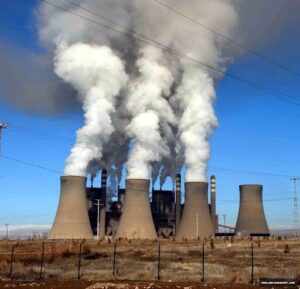
Climate change is one of the defining issues of our generation. Limiting global warming to 1.5°C requires immediate and dramatic reductions in greenhouse gas emissions, especially carbon dioxide. To avoid the worst consequences of climate change, the world must transition to net-zero carbon emissions by 2050. However, achieving this monumental goal will require coordinated action across all sectors of the global economy. That is where decarbonization services come into play.
What are Decarbonization Services?
Decarbonization services refer to the wide range of solutions, technologies, and expertise required to transition individuals, organizations, cities and entire economies away from fossil fuel dependence towards cleaner, lower-carbon alternatives. Companies offering decarbonization services help assess carbon footprints, develop emissions reduction strategies and implementation plans, and deploy proven solutions like renewable energy, energy efficiency upgrades, electrified transportation, carbon capture, and more.
Decarbonization consulting firms work with clients to understand their carbon footprint, establish science-based emissions reduction targets in line with a 1.5°C pathway, and create customized plans to meet those targets. This often involves assessing current operations and identifying opportunities to switch to lower-carbon fuels, improve energy efficiency, electrify equipment and vehicles, reduce transportation emissions, and implement carbon removal and storage technologies where needed. Decarbonization services also include project management, financing assistance, technology procurement and installation, workforce training, and ongoing monitoring and reporting of emissions reductions.
Role in Helping Key Sectors Decarbonize
Decarbonization services will play a crucial role in helping every sector of the economy transition to net-zero emissions by 2050. Some of the major sectors and applications of decarbonization services include:
Energy Generation
Helping utilities, independent power producers, and governments transition electricity generation away from fossil fuels like coal and gas towards renewable energy sources like solar, wind, hydropower and geothermal. This involves grid modernization, battery storage deployment, renewable energy project development and integration services.
Transportation
Advising automakers, fleet operators, logistics companies and cities on strategies to electrify vehicle fleets, develop charging infrastructure, improve public and shared transportation systems, and shift long-haul freight transport towards lower-carbon alternatives like electric and hydrogen fuel cell vehicles.
Manufacturing
Working with industrial firms, chemicals producers, refineries and others to switch to lower-carbon fuels and feedstocks, improve energy efficiency, deploy carbon capture systems, electrify equipment and processes, and ultimately achieve net-zero industrial emissions.
Buildings
Partnering with real estate developers, property managers, and homeowners to retrofit existing structures with efficient heating/cooling systems, electric appliances, insulations, smart controls and solar/battery integration to dramatically reduce building emissions.
Agriculture and Land Use
Collaborating with farmers, ranchers and land managers to develop regenerative practices that boost soil carbon storage, tap renewable fuels and power, capture livestock emissions, and ensure landscapes and ecosystems actively remove carbon from the atmosphere.
Driving Real Change Through Implementation
While developing thorough decarbonization roadmaps and strategies is an important first step, the real success of these services depends on effective implementation – deploying the solutions, securing financing, overcoming policy and regulatory barriers, and changing workforce skills and mindsets. Decarbonization services firms shepherd clients through the entire transition process, providing project management, procurement assistance, workforce training, and community engagement.
With experience implementing a wide range of decarbonizing technologies across differing sectors and geographies, these specialists help de-risk transformations, maximize available incentives and financing options, and ensure emissions reductions targets are achieved in a cost-effective manner. Their deep expertise with policies like carbon pricing, clean energy standards, vehicle mandates and more also helps unlock vital government and utility support programs.
Overall, decarbonization services provide a one-stop solution for entities seeking to achieve net-zero emissions by 2050. With a whole-systems, solutions-driven approach, these firms embrace both the climate challenge and economic opportunity of the green transition. By helping deliver actual reductions through proven implementation strategies, decarbonization services will play an indispensable role in bending the emissions curve and achieving a carbon neutral future.
*Note:
- Source: Coherent Market Insights, Public sources, Desk research
- We have leveraged AI tools to mine information and compile it
